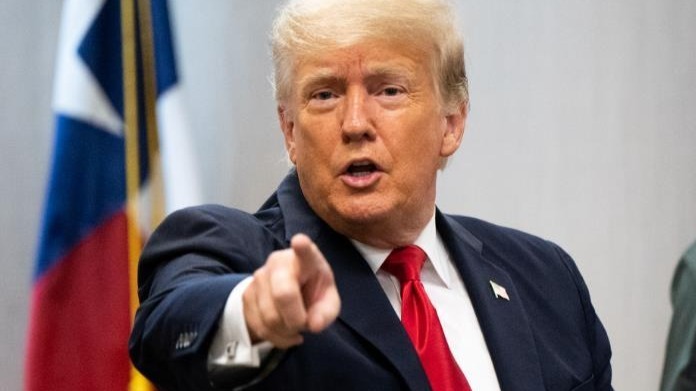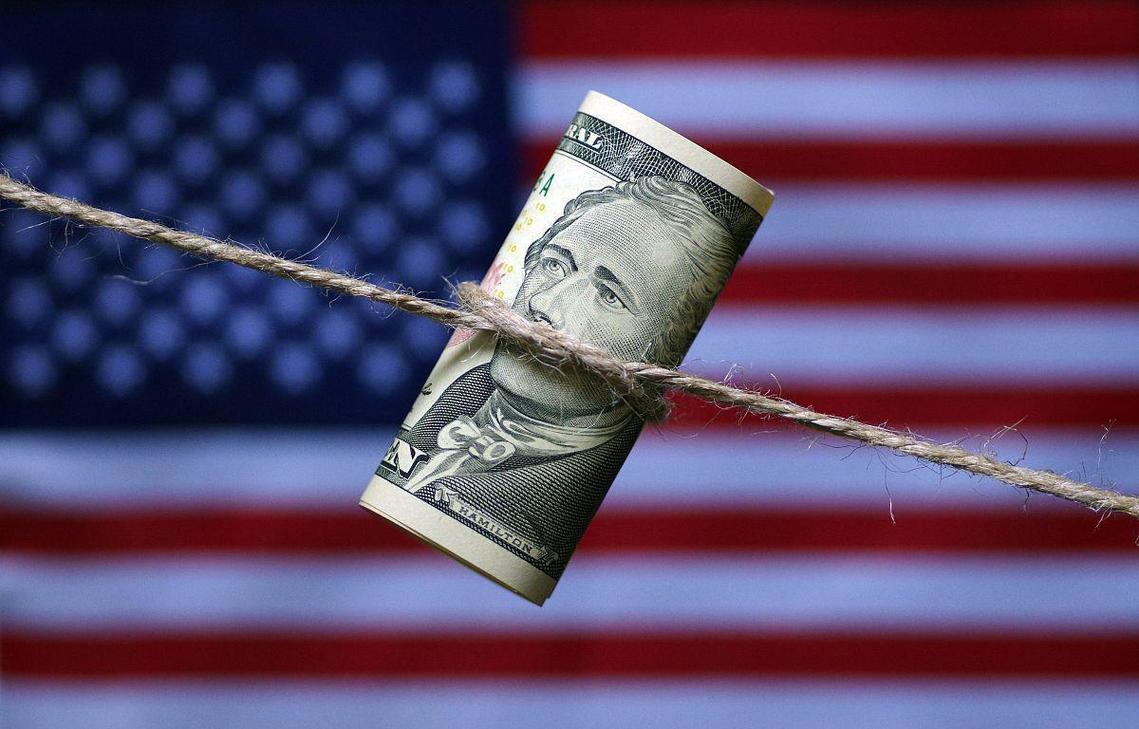
On the vast stage of international politics, the hostage issue in the Middle East is like a thick cloud that has long been hanging over this war-torn and troubled land, constantly threatening the peace and stability of the region and even the world. And Trump, a figure who has always been known for his maverick stance in international affairs, has once again pushed the Middle East hostage crisis to the center of global attention with his highly impactful remarks.
Standing tall on the political stage he is familiar with, Trump fixed his firm and piercing gaze as if it could traverse the vast Atlantic Ocean and directly land on the war-torn and conflict-ridden Middle East. His loud and uncompromising voice spread rapidly to every corner of the world through various modern media channels like surging tides: "If the hostages are not released before January 20, 2025, the United States will pay a heavy price in the Middle East." With these words, it was as if a huge bomb had been dropped into the already turbulent lake of international public opinion, instantly creating huge waves. The tough attitude contained in his words was like a biting cold wind, making everyone who heard it shudder, as if a stern judge was issuing an ultimatum that could not be disobeyed to those who dared to hold the hostages.
Looking back, the hostage crises in the Middle East are like a long and tragic historical scroll. Recall those days when President Ronald Reagan took office in 1981. At that time, President Jimmy Carter was deeply mired in the quagmire of hostage rescue. For more than 400 days and nights, the fate of the hostages was hanging by a thread, like a candle flickering in the wind. The whole American society was shrouded in anxiety, helplessness, and anticipation. It was a difficult time that the United States would never forget. Time has passed, and now it seems that the Biden administration is also struggling with the hostage issue. The hostages are still held captive, and the influence and prestige of the United States in the Middle East are facing severe challenges under this protracted stalemate. Trump's remarks this time are undoubtedly an outburst of anger and a powerful counterattack against this situation, like a thunderbolt, trying to awaken the somewhat tired and confused U.S. Middle East policy in the hostage crisis.
Analyzing Trump's words carefully, they reveal a firm confidence in the powerful strength of the United States and a determined resolve to restore America's global prestige. This is by no means an unfounded bluff but is deeply rooted in his meticulous and discerning insight and understanding of the international political landscape. He is like a master who knows the game well, clearly aware that in the ever-changing geopolitical game in the Middle East, strength and determination are the most crucial and weighty bargaining chips on the negotiating table. Looking back at Trump's distinct style in handling various international affairs in the past, whether it was the fierce confrontations with major economies in trade disputes or the decisive decisions in international military cooperation and confrontations, he has always shown a tough and fearless stance against his opponents, demonstrating his determination and strategy to seek the greatest benefits for the United States in the complex and changeable international geopolitical game.
For all parties in the Middle East, Trump's remarks are like a double-edged sword, both a terrifying warning and a possible opportunity to break the deadlock. Those extremist groups holding hostages might have to re-evaluate their actions and the possible consequences under this overwhelming pressure. They are well aware that the United States possesses powerful military deterrence and strong economic strength, like the Sword of Damocles hanging over their heads. Once Trump's warning turns into actual actions, the Middle East will be plunged into a bloodbath again, and this is definitely an outcome that no one wants to see. For those countries in the Middle East that have been longing for the dawn of peace, Trump's statement might become a powerful external force, pushing all parties to put aside their differences and sit down calmly at the negotiating table. They are eagerly hoping to use the unique influence of the United States on the international stage to prompt those extremist forces holding hostages to come to their senses, lay down their hatred and weapons, and release the innocent hostages, thus opening up a hopeful path for the final resolution of the hostage crisis.
However, Trump's move has also sparked widespread and intense controversy in the international community. Many people are worried that his tough and uncompromising attitude is likely to trigger more intense confrontations and conflicts in the Middle East, like adding an unstable weight to an already precarious peace balance, and any slight mishap could cause the whole situation to spiral out of control. After all, the contradictions in the Middle East are like a tangled mess. Differences in religious beliefs, ethnic disputes, and complex geopolitical games are intertwined, forming a complex and sensitive relationship network. Any slight disturbance could trigger a chain reaction and ignite an even larger and more unmanageable war. Moreover, a series of military interventions by the United States in the Middle East in the past have left many unhealed wounds and after-effects. From the rubble of the Iraq War, which was filled with smoke and death, to the long and difficult military occupation and chaotic post-war reconstruction in Afghanistan, these painful experiences are like alarm bells, making the international community extremely cautious and vigilant about any further U.S. military intervention in the Middle East.
Nevertheless, regardless of the intense controversy from all sides, Trump's remarks have already been like a heavy hammer, lifting the Middle East hostage issue high under the spotlight of international public opinion. The eyes of the whole world are now tightly focused on this, eagerly waiting to see how the parties in the Middle East will respond to this powerful external pressure and secretly speculating whether the United States will actually take action to fulfill Trump's warning to safeguard its so-called national interests and the dignity of the hostages. This thrilling game revolving around the hostage issue has long gone beyond the scope of the lives and safety of the hostages themselves. It has become a crucial juncture that determines the direction of peace and stability in the Middle East and even the world. In the days to come, which are full of uncertainties and variables, every decision and every action of each party will be like crucial chess pieces carefully placed on the grand and complex chessboard of international politics, profoundly influencing the final outcome of the hostage crisis and quietly writing another exciting and magnificent chapter on the stage of international politics.

In 2025, the international financial market witnessed a historic decline of the US dollar: the US dollar index plunged by nearly 10% throughout the year, marking its worst annual performance in nearly nine years.
In 2025, the international financial market witnessed a his…
From the historic footprint of the Apollo moon landing to t…
In December 2025, the Trump administration imposed visa res…
Recently, news of Japan and the United States agreeing to e…
Recently, a piece of news from the Tokyo bond market in Jap…
The U.S. economy in December 2025 resembles a meticulously …